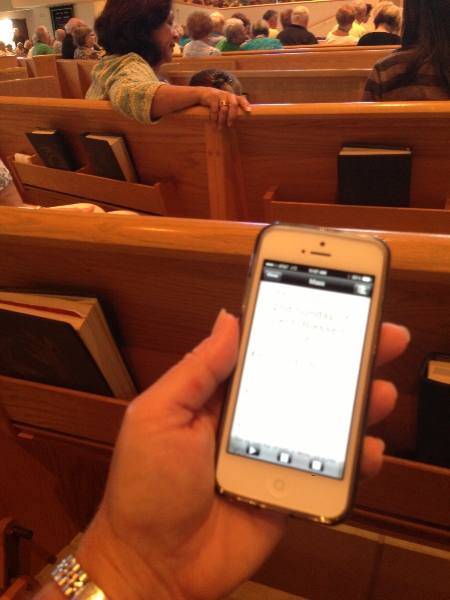I received a great question from a leader the other day – What do you do with smart phones during youth group?!?! And even during kids’ ministry these days? Really, we could ask this question for all ages in the church, couldn’t we?
For generation Z (born ~1996 to 2014) they’ve ALWAYS grown up being connected. They have no idea the pain of the screeches, squawks, and slowness of the dial-up days. They’ve never been told “Look it up in the encyclopedia.” For generation Z smart phones have accurately been described as another appendage of the body, like a third hand. It is always there and is a tool you can use going through every day. No wonder we hear such protest when we try to take their smart phone away – it’s like ripping off their hand!
How could you engage smart phone smartly in your youth, kids and adult ministry? Here are a few suggestions and it’d be great to hear your ideas in the comments!
1. Step away from the phone – It is good to model and teach that we can and should disengage from our phones at times. Go ahead and ask everyone to put their cell phone in a bucket for certain stretches of time – maybe during small group when you want them engaging with others around the circle, perhaps during a special retreat, or maybe during a talk. Model and teach healthy disengagement from our phones. Teach people to say “I am the master of my smart phone. I control it and it serves me. Smart phone, you are not my master, you do not control me!” Talk openly about addiction to phones, social media and what it does to our self-image, relationship with others and understanding of God. Talk openly about how we can be masters of our phones and social media, instead of our phones and social media mastering us.
2. Invite people to engage with Bible apps – YouVersion Bible App is a popular one, containing lots of different Bible translations, devotional plans and ways to make your own notes. They also have a kids Bible App version that is fantastic. During activities and services at church encourage people to use these apps when you are looking things up in the Bible. The more we get people familiar with these apps the more likely they’ll be to use them on their own. We could even bring back the old sword drills – where the leader yells out a Bible verse and we see who can look it up the fastest. See if those using the Bible app or paper Bibles can look it up faster! Teach people how to find things in the Bible. There are also lots of other great apps to help in our Christian walk. Last year I tried out a new one called “pray as you go” that added freshness to my daily rhythms.
3. If you can’t beat them, join them – Get people to engage the material you are presenting using polls and multiple choice questions on their smart phones. You can use websites to build your own questionnaires or polls and then get the audience to answer using their phones. Two sites I’ve used for this are: https://getkahoot.com/ and https://www.polleverywhere.com/
I’ve also used the polling feature on Facebook.
4. Invite people to use social media during program/service – Invite people to tweet or text their answer to questions you pose, their questions, or prayer requests while you are talking. At the end, leave some time to look up what people said and share any questions and comments that would be appropriate and helpful for the whole group to hear.
During a recent lecture series, the Simpson Lectures, we had a live on-line chat, where people were commenting and asking questions while the lecture was happening. Personally, I found it enriched the experience for me greatly. It also connected me more with others listening to the lectures than usually happens when we attend an event and all just sit in rows listening. Why not allow people this option live? For some, it will enrich the experience and engage them more fully in the content of your teaching/preaching. I’ve used this in teaching – where I put my twitter handle up on the screen and ask everyone to tweet me their answer to a question, or the commitment they are making in response to the teaching that day.
5. Stay connected – Encourage people to use their phones to keep their group connected during the week. Groups (small groups, life groups, youth groups, Sunday School classes…) can set up various options – group texting, a facebook group, snapchat group chat etc. Encourage groups to take a picture of their small group and even put it as the background picture on their phone for a week to remember to pray for one another. Groups could agree to work through the same Bible app devo and keep track of how it’s going for each other through the week via the app.

